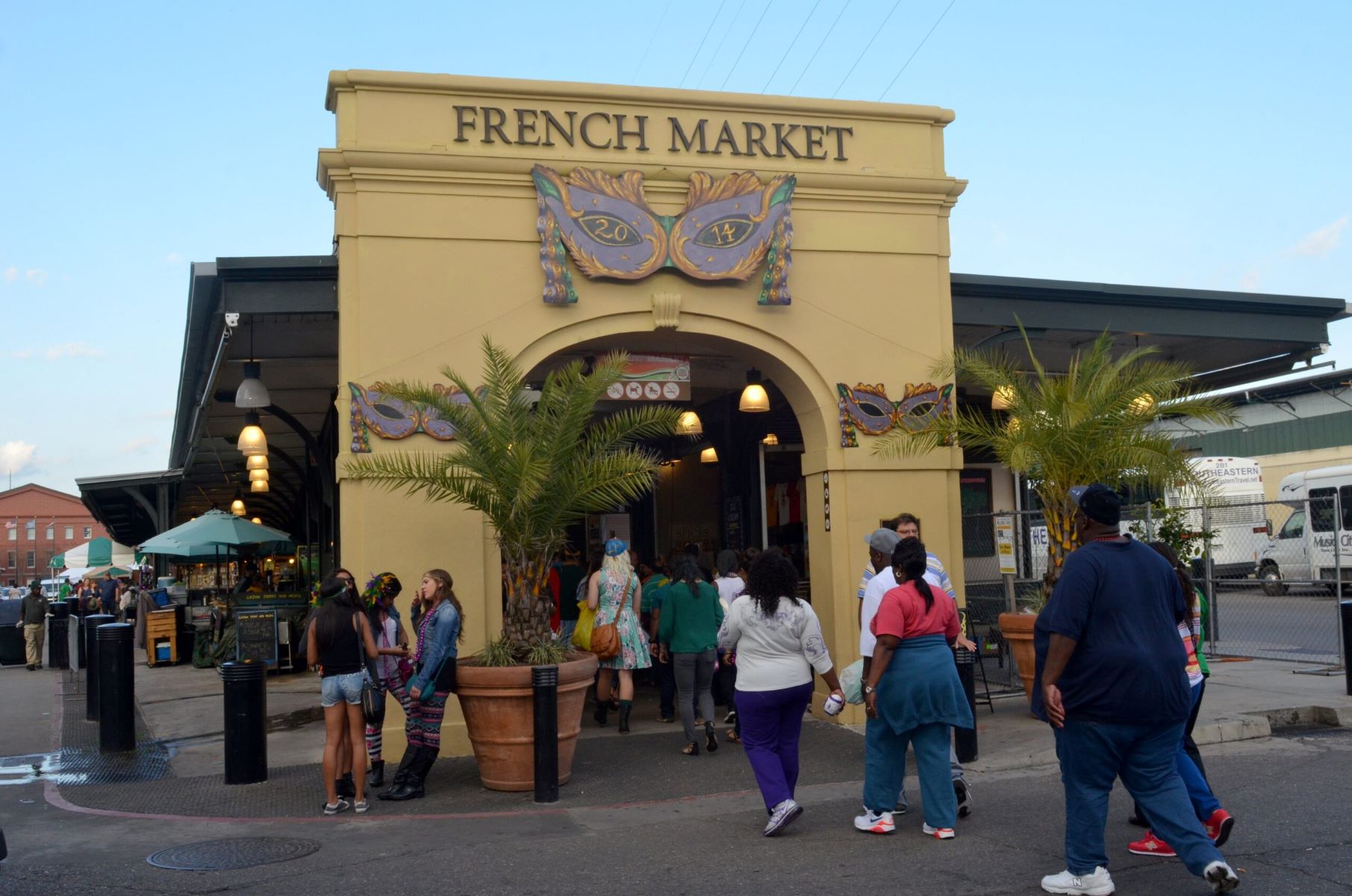
French markets are more than just places to buy groceries; they're vibrant hubs of culture, tradition, and community life. From the bustling streets of Paris to the quaint villages in Provence, each market offers a unique glimpse into the heart of French society. Here, locals and tourists alike gather to find the freshest produce, artisanal cheeses, handcrafted goods, and so much more. These markets are not only essential for daily shopping but also serve as social gatherings where people meet, chat, and enjoy the simple pleasures of life. With a history that spans centuries, French markets continue to thrive, preserving the rich culinary heritage and fostering a sense of belonging among community members. Whether you're a food lover, a culture enthusiast, or simply curious, understanding these markets can enrich your appreciation of France's diverse and vibrant culture.
What is the French Market?
Nestled in the heart of New Orleans, the French Market stretches over six blocks and stands as the oldest public market in the United States. Originating as a Native American trading post along the Mississippi River, it has evolved into a vibrant hub of culture, food, and artisanal goods. This market isn't just a place to shop; it's a historical landmark that has witnessed the growth and transformation of New Orleans for over two centuries.
- The French Market was officially founded in 1791, making it over 230 years old.
- Originally, it served as a Native American trading post before European settlers established a more formal marketplace.
The Evolution of the French Market
Over the years, the French Market has undergone significant changes, reflecting the cultural shifts and economic growth of New Orleans. From a simple open-air market, it has expanded to include enclosed shops, diverse food stalls, and even a flea market that attracts tourists and locals alike.
- In the 19th century, the market expanded to include the first permanent structure, known as the Meat Market.
- The 1970s brought a major renovation that aimed to preserve its historical essence while modernizing facilities.
Cultural Significance
The French Market isn't just about commerce; it's a cultural epicenter that showcases the rich tapestry of New Orleans' history and traditions. From Creole tomatoes to Mardi Gras beads, the market offers a glimpse into the city's soul.
- It hosts annual events like the Creole Tomato Festival, celebrating Louisiana's unique produce.
- Local musicians often perform live, adding to the market's vibrant atmosphere.
Culinary Delights
Food is a cornerstone of the French Market, with stalls and cafes serving up a variety of local and international cuisines. Whether you're craving beignets, gumbo, or something more exotic, the market is a foodie's paradise.
- The famous Café du Monde, known for its beignets and café au lait, is located within the market's boundaries.
- Seafood dishes, particularly crawfish and oysters, are staples among the market's food offerings.
The Flea Market
Adjacent to the traditional food and produce stalls lies the Flea Market, a treasure trove of antiques, handmade crafts, and unique souvenirs. This section of the market allows artisans and vendors to showcase their talents and goods to a wide audience.
- The Flea Market features over 100 vendors selling everything from vintage jewelry to handcrafted soaps.
- Many items sold here are one-of-a-kind, making it a popular spot for finding unique gifts.
Sustainability Efforts
In recent years, the French Market has made strides towards sustainability, recognizing the importance of environmental conservation in preserving its legacy for future generations.
- Initiatives include the use of biodegradable packaging by vendors and the installation of solar panels on some buildings.
- The market also participates in recycling programs and encourages vendors to minimize plastic use.
Visiting the French Market
A visit to the French Market is a must for anyone exploring New Orleans. With its rich history, diverse offerings, and lively atmosphere, the market provides a unique experience that reflects the spirit of the city.
- The market is open daily, though hours for individual vendors may vary.
- Special events and festivals often take place at the market, offering additional entertainment and activities for visitors.
The Impact of the French Market on New Orleans
The French Market has played a crucial role in the economic and cultural development of New Orleans. It has not only been a place of commerce but also a gathering spot that fosters community and celebrates the city's diverse heritage.
- It attracts millions of visitors each year, contributing significantly to the local economy.
- The market has been a launching pad for many local businesses and entrepreneurs.
The Future of the French Market
As the French Market continues to evolve, there are ongoing efforts to ensure it remains a relevant and vibrant part of New Orleans. Plans for the future include enhancing the visitor experience while preserving the market's historical charm.
-
Upcoming projects aim to further diversify the market's offerings, including more local artisan and food vendors.
-
Efforts are also underway to improve infrastructure and accessibility, ensuring the market remains a welcoming place for all.
-
The French Market Corporation, a nonprofit organization, oversees the market's operations, ensuring its growth aligns with community values and historical preservation.
-
With a focus on sustainability, cultural celebration, and economic development, the future of the French Market looks bright, promising to continue its legacy as a beloved landmark in New Orleans.
A Final Stroll Through French Market Facts
We've journeyed through a maze of intriguing details about French markets, from their ancient origins to the vibrant role they play in modern culture. These markets aren't just places to buy food; they're social hubs where tradition meets today's hustle and bustle. Whether it's the fresh, locally sourced produce, the artisan crafts, or the lively atmosphere, there's something undeniably special about them. Remember, next time you find yourself wandering through one of these markets, you're stepping into a centuries-old tradition that continues to thrive. It's not just about shopping; it's an experience, a way to connect with the local culture and history. So, grab a basket and let the vibrant colors, enticing smells, and unique sounds guide you through a memorable adventure.
Was this page helpful?
Our commitment to delivering trustworthy and engaging content is at the heart of what we do. Each fact on our site is contributed by real users like you, bringing a wealth of diverse insights and information. To ensure the highest standards of accuracy and reliability, our dedicated editors meticulously review each submission. This process guarantees that the facts we share are not only fascinating but also credible. Trust in our commitment to quality and authenticity as you explore and learn with us.


